Author name: Sandy McCarthy
Job title: Faculty Librarian
Affiliation: Washtenaw Community College, Michigan
USDA Plant Zone: 6
Your top 5 pollinator plants:
- milkweed
- black-eyed susan
- bee balm
- New England aster
- sand coreopsis.
Lessons learned:
- WCC is fortunate to have a large natural area surrounding the campus, as well as a robust biology/environmental science curriculum. Both work well together to make our Bee Campus initiatives effective and successful.
- Like a functional ecosystem, the Bee Campus initiative works well on our campus due to the communal efforts from several departments and individuals working together.
- We are impressed by not only the involvement of various individuals, students, and areas of the college, but the vast expertise they all have on topics useful to a Bee Campus initiative.
- The student/community response to this initiative has been extremely supportive and positive.
- Small steps can still have a large impact. Even though we may not be able to implement a full-scale initiative, we look for ways to move forward with our goals.
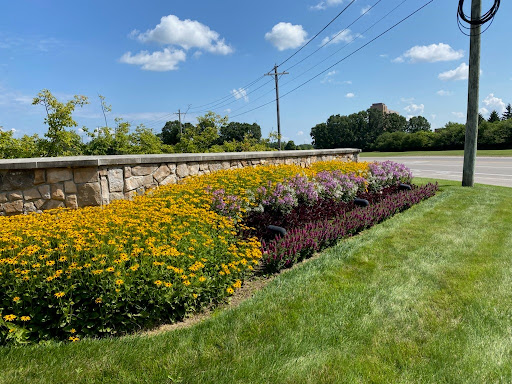
“Handle a book as a bee does a flower, extract its sweetness but do not damage it.” ― John Muir
In 2019, Washtenaw Community College (WCC) became one of three Bee Campus USA affiliates in Michigan and the 88th institution in the nation to receive the designation. WCC is in Ann Arbor, in the southeast lower peninsula of Michigan. With over 120,000 residents, Ann Arbor is a university town and a culinary hotspot, with a walkable downtown. Washtenaw Community College values the importance of pollinators, especially bees, to the life cycle of flowers, plants, fruits, vegetables, and crops like alfalfa that feed our livestock—as well as to supporting wildlife. Promoting the importance of bee pollination to food production and our environment starts with awareness. To entice and nurture bees at WCC, the campus provides many bee-friendly native flowers, a hoop house, a food forest, a nature trail with native plants, pollinator-friendly pesticide use in conjunction with an integrated pest management (IPM) program, biology/environmental credit courses and non-credit courses focusing on pollinators, and other educational events.
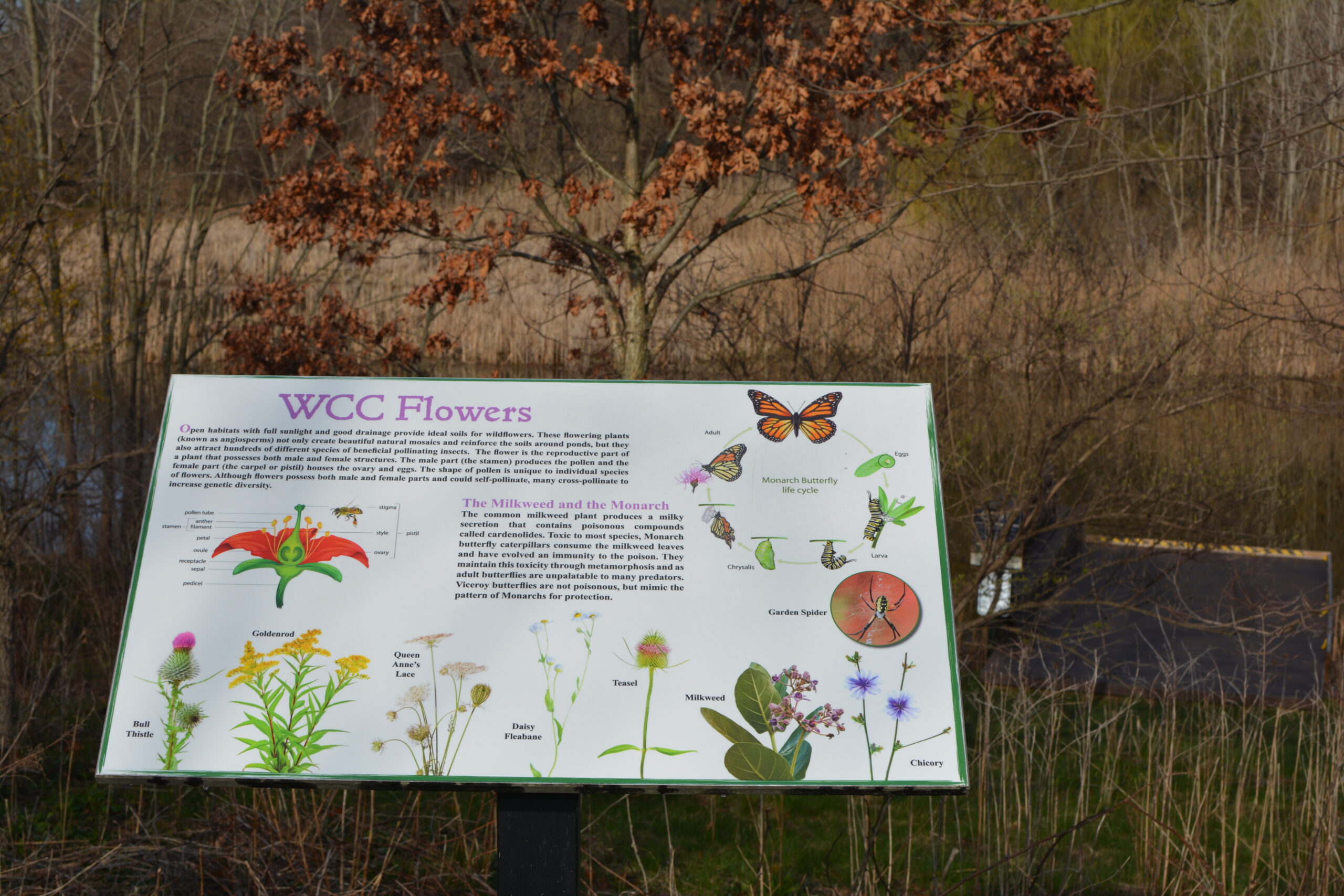
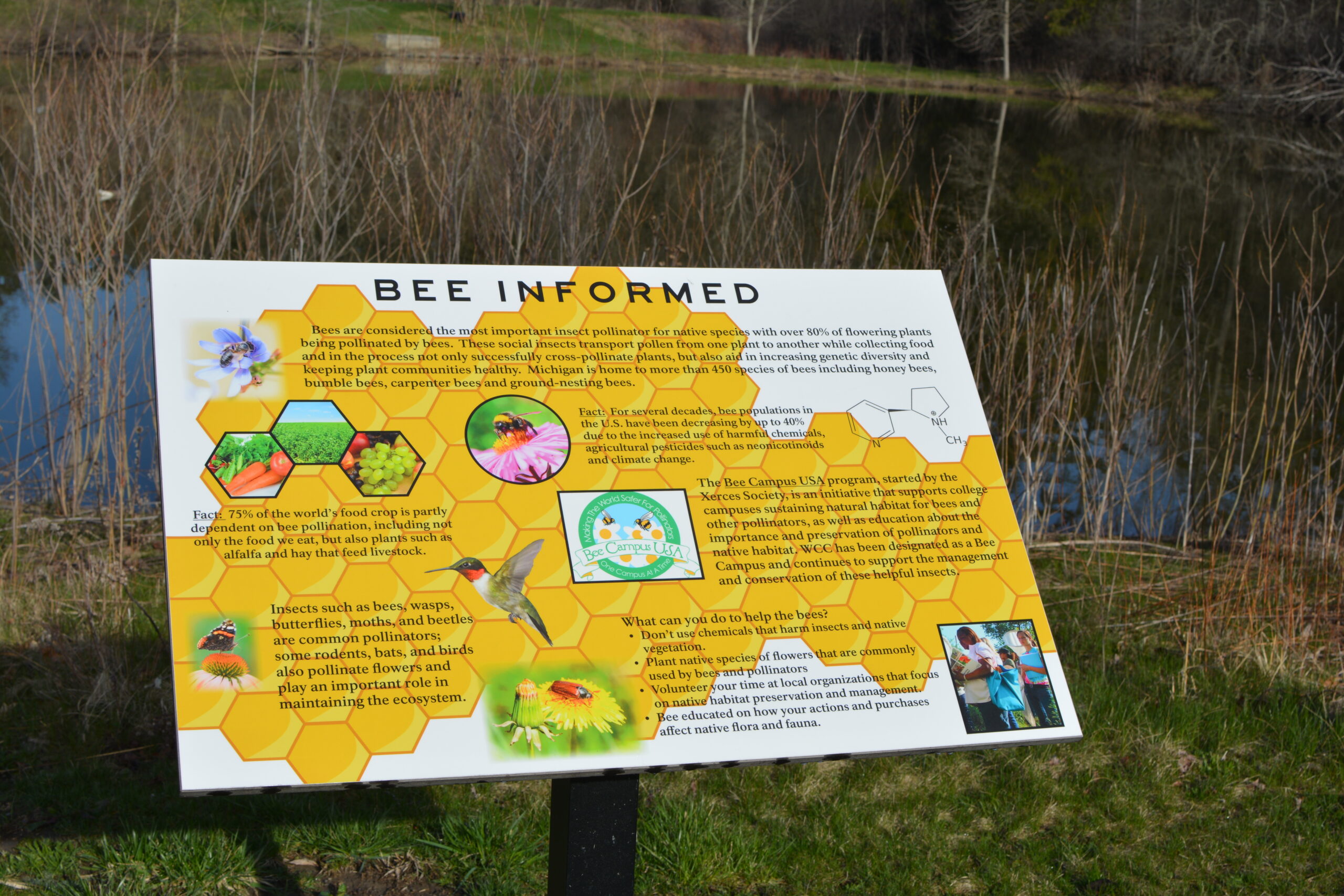
Washtenaw Community College’s Bee Initiative was established with the collaboration and dedication of people representing faculty, landscaping and grounds maintenance, Washtenaw Technical Middle College (WTMC), and community enrichment instructors, as well as student volunteers.
Each year’s Bee Campus plan is to offer bee awareness events, highlighting issues related to bee pollinators tied to campus initiatives, and student-service learning projects.
The Students for Sustainability Club (S4S) and Sustainability Literacy Task Force (SLTF) planted some pollinator-friendly flowers in the Student Food Forest this year, including joe-pye weed, anise hyssop, blue false indigo, compass plant, marsh blazing star, golden currant, borage, and oregano. One thing we learned this year is that some of the native bees (bumble bees) are very large, so large they couldn’t fit through the holes in our plastic fencing. They eventually learned to go over the fencing to reach the flowers. As a result, next year, we’ll buy fencing with much larger holes!
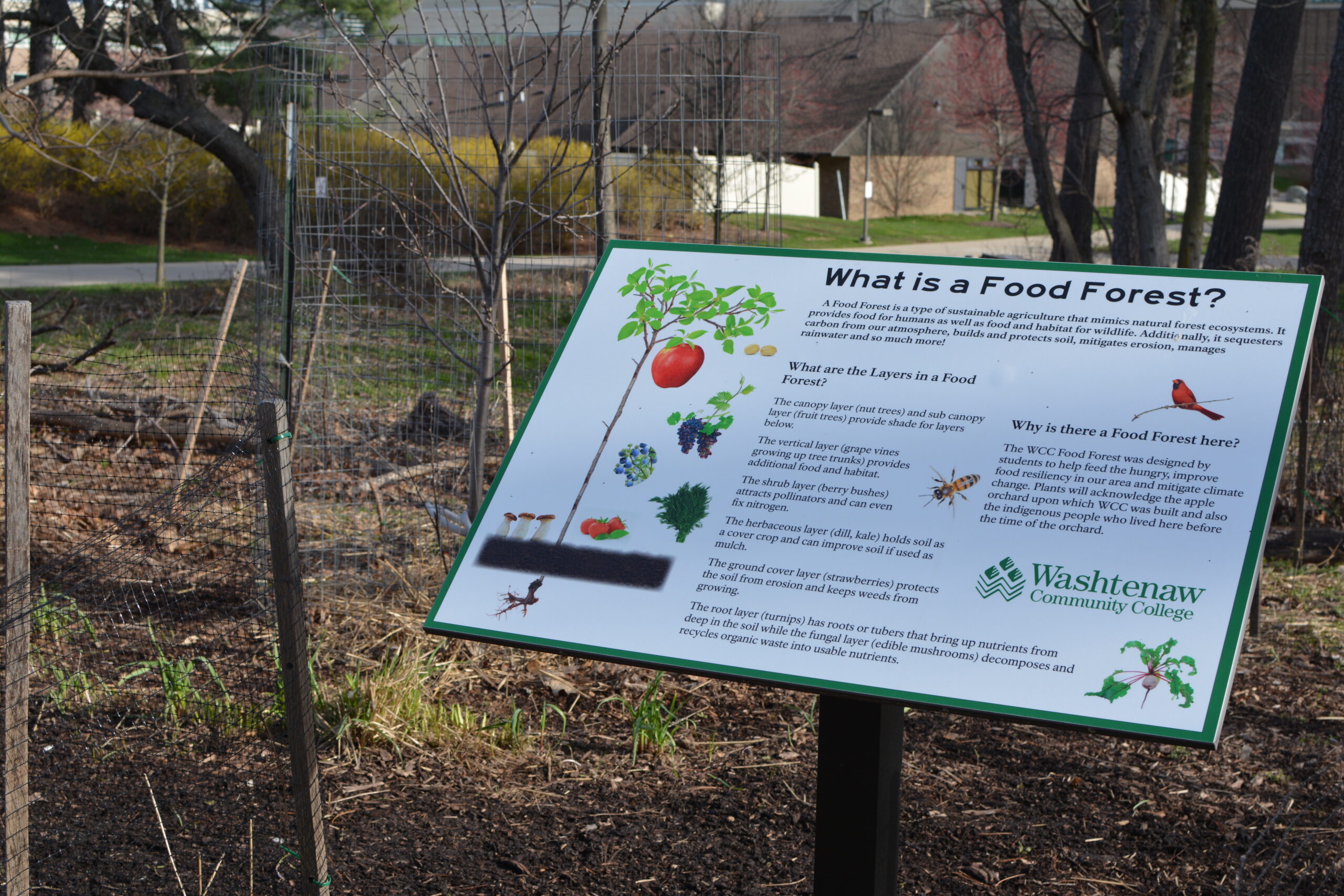
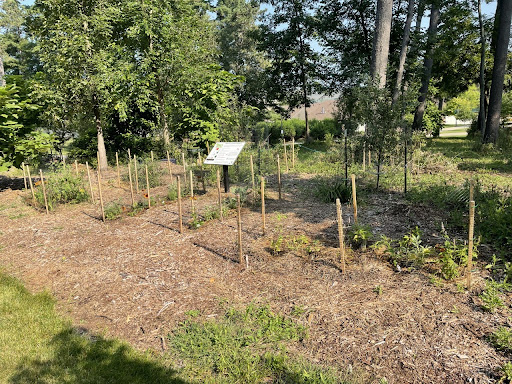
Each event focused on educating students, campus constituents, and community members about pollinators and the importance of their role in food production as well as their current state of decline and what we can do to support our pollinators. In spring of 2021, the S4S presented Bee-Friend the Bees Virtual Event, during which students shared information on bee-friendly plants and how you can help save the bees. In October 2021, we hosted Building the Motor City’s Bee Highway, A BeeTalk with Brian Peterson-Roest, Founder of Bees in the D. He shared with us a discussion of the sustainable change happening in Detroit with the support of local businesses and engaged community leaders. Another program, offered in fall 2021, shared the published research findings of two University of Michigan PhD candidates. In The Bees in Your Backyard: Effects of Urbanization on Wild Bees, they talked about their work examining the effects of urbanization on bees in Southeast Michigan, and discussed actions to make cities more bee-friendly.
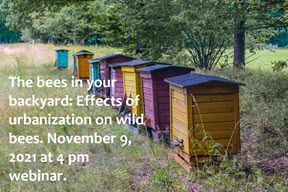
Washtenaw Technical Middle College, a four-year high school on the WCC college campus, has several educational opportunities for students to learn about bees and pollination. During the winter 2022 semester, all 9th grade students were enrolled in an environmental science class that has a sustainable food systems unit. Within that unit, students worked in the hoop house weekly and learned about bees through seed starting of plants like borage, coreopsis, milkweed, and zinnias. These seedlings will be planted directly in our perennial beds and pots around the WTMC student farm. WTMC students who are National Honor Society members will fulfill their service hours by attending a pollinator presentation and will start native pollinator seedlings to distribute throughout our WTMC community.
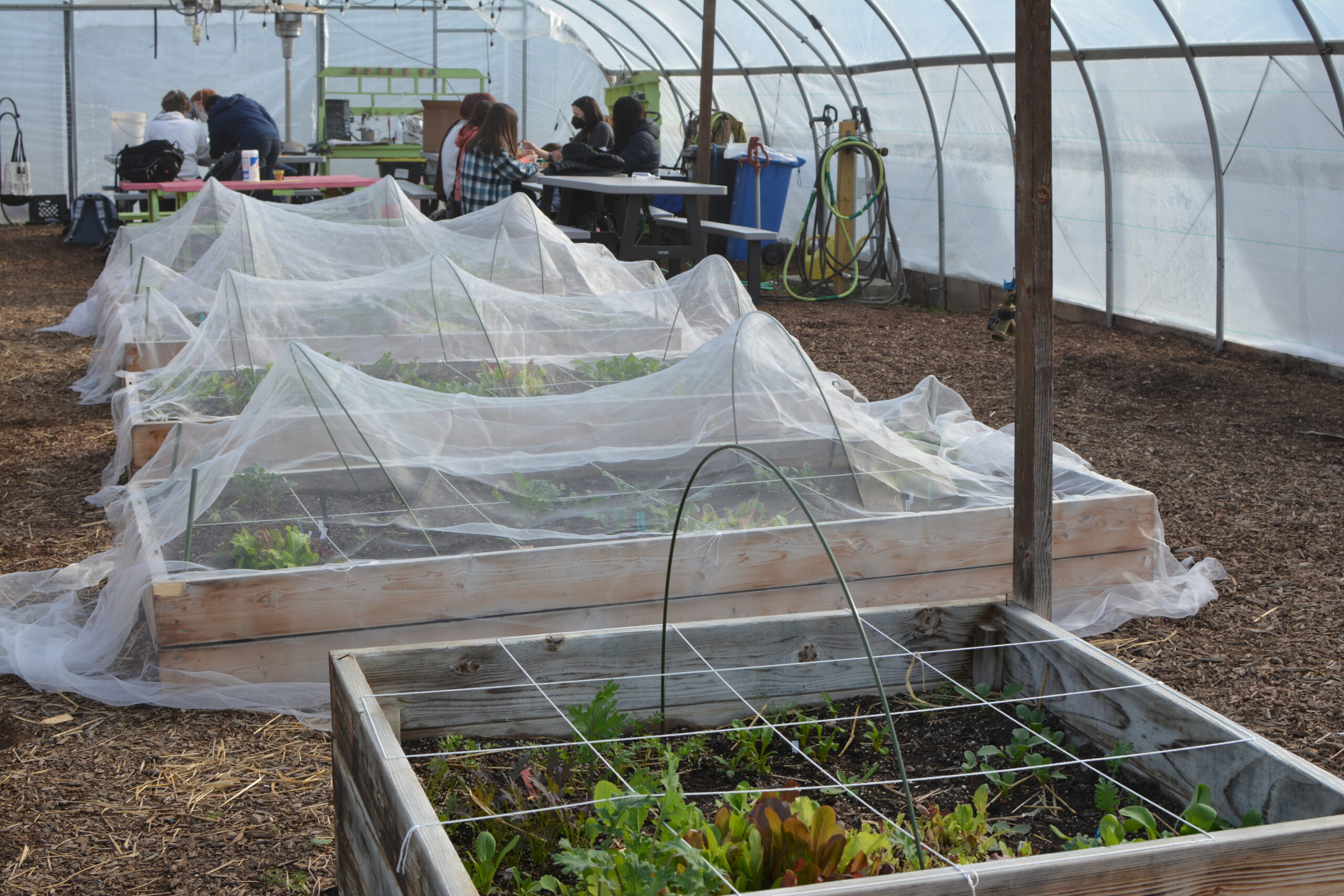
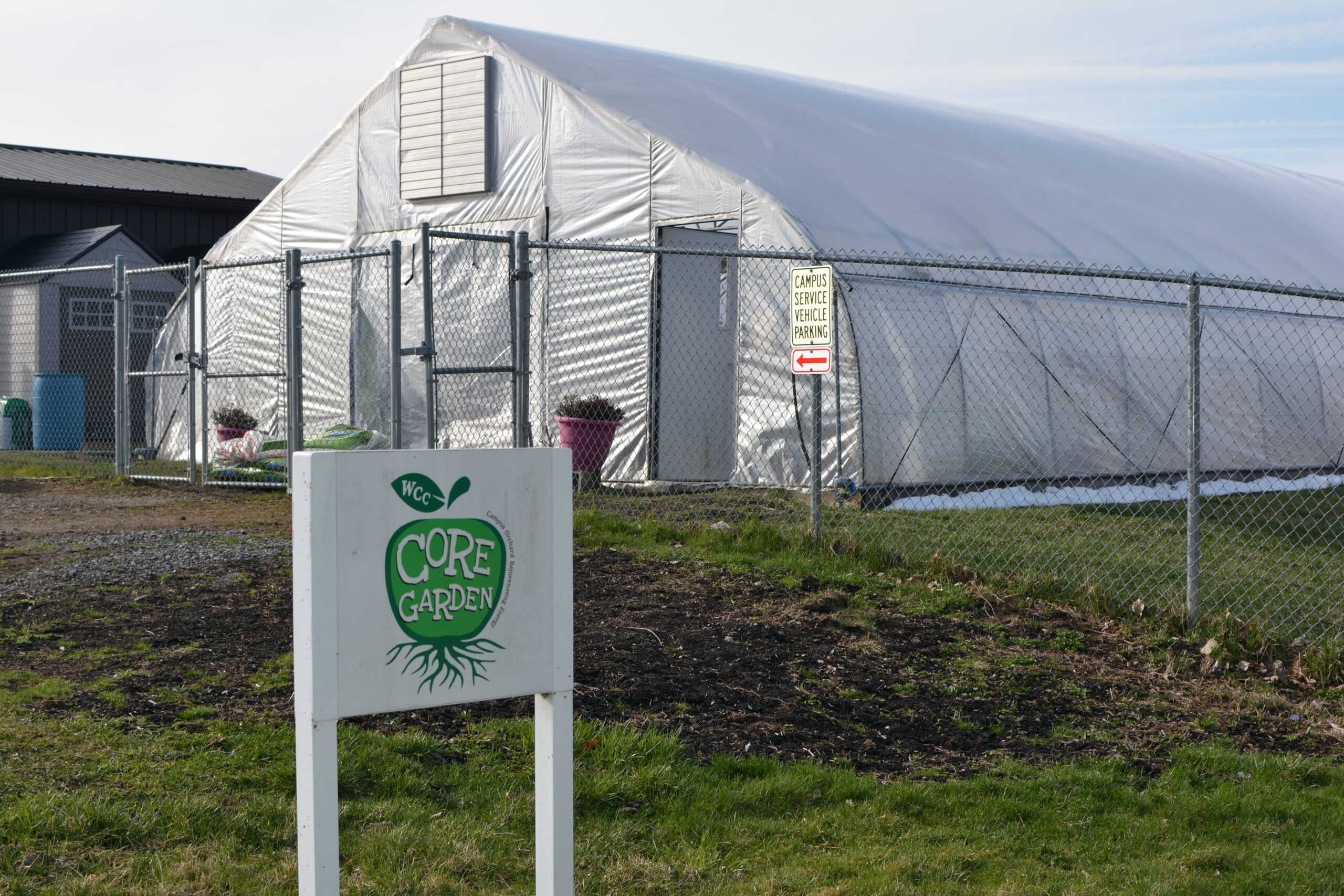
During the spring 2022 semester, 9th grade students enrolled in Health class planted the perennial beds with a focus on specific plants to maintain our bee population. We also had a geometry class that constructed mason bee houses for the student farm.
The WCC Bailey Library is promoting the Bee Campus USA and Seed Library initiatives with a display of books, educational materials, and an activity table. The goal is to promote awareness of pollinators and what you can do to help the bees such as plant a pollinator garden from seeds provided for free to the local community from the WCC Seed Library.
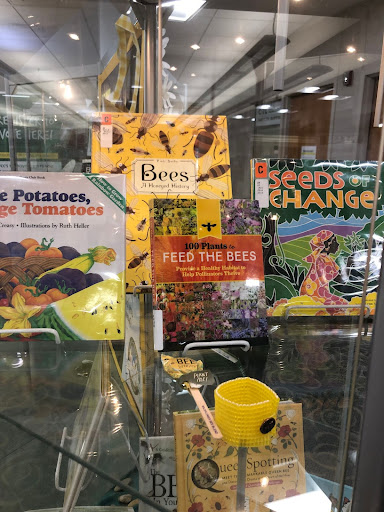
We believe that our Bee Campus USA initiative is a model for other higher education institutions. On September 24, 2021, two environmental sciences professors and their students from Eastern Michigan University interested in a forest restoration project at their campus scheduled an outdoor tour of the Washtenaw Community College campus. They saw WCC’s efforts with the Nature Trail, Pine Woods, Student Food Forest, Tree Campus USA, and Bee Campus USA and wanted to learn more about our many sustainability initiatives.
We just finished outlining our events and service learning projects for fall 2022 and winter 2023. If you are interested in learning more about our program, or launching your own Bee Campus USA initiative, connect with us on our Bee Campus website.





